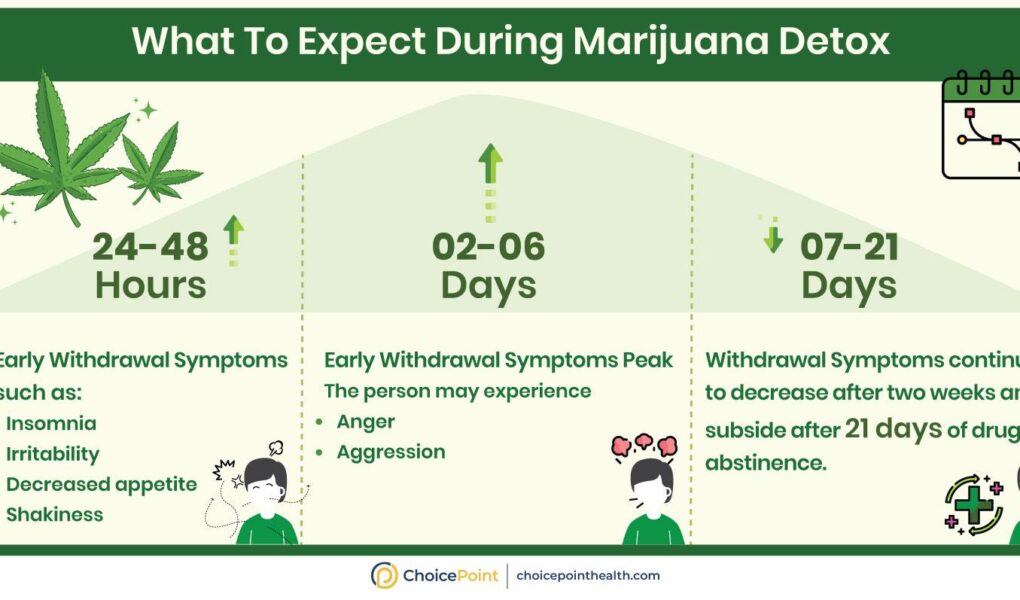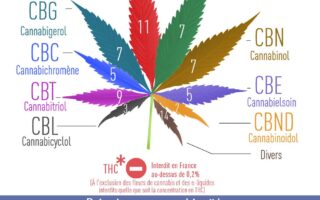The Hidden Edge of Euphoria: Understanding THC Overdose
In a world where cannabis culture has blossomed from the shadows into the mainstream, the allure of tetrahydrocannabinol (THC) is undeniable. Many individuals revel in its ability to inspire creativity, soothe anxiety, or simply elevate an ordinary evening. Yet, as with any potent substance, there exists a shadow side that deserves attention: the phenomenon of THC overdose. Though it might sound paradoxical in an era where cannabis is lauded for its therapeutic benefits, the experience of consuming too much THC can lead to unsettling consequences. This article delves into the nuances of THC overdose, exploring its symptoms, the science behind it, and the importance of responsible consumption in a landscape that is ever-evolving. Join us as we unravel the complexities of this often-overlooked aspect of cannabis use, inviting readers to cultivate both awareness and appreciation for this powerful compound.
Table of Contents
- Understanding THC Overdose: Symptoms and Mechanisms
- Navigating the Effects: What Happens to the Body and Mind
- Risk Factors and Vulnerable Populations: Who is Most Affected?
- Preventative Measures and Support: Strategies for Safe Consumption
- Q&A
- Future Outlook
Understanding THC Overdose: Symptoms and Mechanisms
When someone consumes cannabis with high levels of THC, they may experience a range of symptoms that indicate an overdose. Unlike overdoses from other substances, THC overdoses are rarely life-threatening but can lead to uncomfortable experiences. Common symptoms include:
- Anxiety and paranoia: Increased heart rate and irrational fear can occur.
- Dizziness and confusion: Many feel disoriented or unable to concentrate.
- Nausea and vomiting: Milder cases may lead to stomach discomfort.
- Extreme lethargy: Users often report feeling unusually tired.
The underlying mechanisms of THC overdose involve its interaction with the endocannabinoid system, particularly the CB1 receptors found in the brain. When THC binds to these receptors in excess, it can overstimulate neurological pathways, leading to the aforementioned symptoms. Various factors, such as the individual’s tolerance, body weight, and the method of consumption, can influence the intensity of these effects. The following table summarizes key points:
| Factor | Impact on Overdose Severity |
|---|---|
| Individual Tolerance | Higher tolerance reduces severity |
| Body Weight | Larger body weight may mitigate effects |
| Consumption Method | Edibles can lead to stronger effects |
Navigating the Effects: What Happens to the Body and Mind
When consuming THC, it’s crucial to understand how an overdose can impact both the body and the mind. The physiological effects can range from mild discomfort to severe reactions. Some common reactions include:
- Increased Heart Rate: A rapid heartbeat can lead to feelings of anxiety or panic.
- Dry Mouth: Often referred to as ”cottonmouth,” this can be quite uncomfortable.
- Impaired Coordination: Difficulty with motor skills can lead to accidents or injuries.
- Bloodshot Eyes: Capillaries expand, causing red eyes, which is a well-known side effect.
Additionally, the psychological effects of THC overdose can significantly alter one’s state of mind. Many individuals report experiencing:
- Heightened Anxiety or Paranoia: Overconsumption can lead to overwhelming feelings of fear.
- Hallucinations: In extreme cases, individuals may experience altered perceptions of reality.
- Memory Impairment: Short-term memory can become compromised during intoxication.
- Confusion: Difficulty in concentrating or forming coherent thoughts can become pronounced.
| Body Effect | Mental Effect |
|---|---|
| Increased heart rate | Heightened anxiety |
| Dry mouth | Memory impairment |
| Impaired coordination | Confusion |
| Bloodshot eyes | Hallucinations |
Risk Factors and Vulnerable Populations: Who is Most Affected?
The potential for overdose on THC, while often underestimated, poses significant risks, particularly for certain groups. Young adults and teenagers are notably vulnerable due to their developing brains, which may react unpredictably to high doses of THC. This demographic is more likely to engage in experimentation, resulting in accidental overconsumption. Additionally, individuals with mental health conditions may experience exacerbated symptoms or adverse reactions, as THC can interact negatively with their existing treatments. The changing landscape of cannabis products, with varying concentrations of THC, further complicates matters, creating an environment where users may unknowingly ingest higher doses than intended.
Another critical factor is previous substance use history. Those with a background of substance abuse may have a different tolerance level, leading to higher risks when consuming THC-rich products. In contrast, older adults can also be susceptible due to the regular medications that may interact with THC, potentially heightening the effects and risks associated with excessive intake. Here’s a brief overview of some of the most affected populations:
| Vulnerable Populations | Risks Associated |
|---|---|
| Young Adults & Teenagers | Developmental risks, accidental overconsumption |
| Individuals with Mental Health Conditions | Worsening symptoms, negative drug interactions |
| People with Substance Abuse History | Higher tolerance leading to increased consumption |
| Older Adults | Interaction with medications, heightened effects |
Preventative Measures and Support: Strategies for Safe Consumption
Safe consumption of THC hinges on a combination of education, awareness, and preparation. It’s essential to be informed about your dosage and the potency of the products you choose. To mitigate risks, consider the following strategies:
- Start Low and Go Slow: Always begin with a low dose to gauge your tolerance.
- Know Your Source: Ensure your products come from reputable suppliers, ideally with third-party lab testing.
- Understand Your Method: Different methods of consumption (edibles, oils, vapes) have varied onset times and effects.
Establishing a supportive environment is equally crucial. Surround yourself with trusted friends or family who can help guide your experience and intervene if necessary. Here’s how to create a safe space:
- Choose the Right Setting: Consume in a comfortable and familiar location.
- Have a Sober Buddy: Having someone who is not consuming THC can provide reassurance and assistance if needed.
- Plan Ahead: Schedule your consumption for a time when you can relax and won’t need to drive or engage in complex tasks.
Q&A
Q&A: Understanding THC Overdose
Q1: What is THC, and how does it work in the body?
A: THC, or tetrahydrocannabinol, is the primary psychoactive compound found in cannabis. When consumed, THC binds to cannabinoid receptors in the brain and body, inducing effects such as euphoria, relaxation, and altered perception. Its interaction with the endocannabinoid system influences various physiological processes, including mood, appetite, and pain sensation.
Q2: Can you technically overdose on THC?
A: While the term “overdose” is often used in the context of THC, it’s important to clarify that a true lethal overdose is nearly impossible with cannabis. Instead, what people often experience is severe discomfort and a range of unpleasant symptoms when consuming an excessive amount, particularly from edibles or concentrates.
Q3: What are the signs of a THC overdose?
A: Symptoms can vary widely but may include feelings of intense paranoia, anxiety, confusion, increased heart rate, nausea, vomiting, and in some cases, hallucinations. These symptoms typically emerge after consuming a high dose of THC, especially in beginners or those unaccustomed to its effects.
Q4: How long do the effects of an overdose last?
A: The duration of THC overdose effects can depend on the method of consumption. If ingested via edibles, symptoms may last several hours, typically peaking around two to three hours after consumption. Inhaled THC effects tend to wear off faster. Most adverse effects will diminish within 24 hours, but the experience can feel overwhelming in the moment.
Q5: What should someone do if they or someone else is experiencing a THC overdose?
A: If you or someone else is experiencing severe symptoms, it’s essential to stay calm and create a safe environment. Hydration can help, but avoid coffee or other stimulants that can increase heart rate. If symptoms escalate to a point of distress or confusion, it’s wise to seek medical assistance to ensure safety.
Q6: Are some individuals more at risk for THC overdose than others?
A: Yes, individual factors play a significant role. New users, those with a low tolerance, or individuals with certain mental health conditions may be more prone to experiencing distressing effects from high doses of THC. Additionally, the potency and method of consumption can influence the risk level.
Q7: How can someone prevent a THC overdose?
A: Prevention starts with education and moderation. For inexperienced users, starting with lower doses and waiting to gauge effects before consuming more is crucial, particularly with edibles, where the delayed onset can lead to accidental overconsumption. Clear labeling and understanding product potency also aid in safe use.
Q8: What does the research say about long-term effects of high THC consumption?
A: Research is still evolving, but long-term heavy use of high-THC products is associated with potential cognitive impairments, dependence, and increased risk of mental health issues in predisposed individuals. Moderation and responsible usage can help mitigate these risks.
Q9: Can THC have therapeutic benefits, and how does that relate to the risk of overdose?
A: THC is known for its therapeutic benefits, including pain relief, appetite stimulation, and reduced nausea, particularly in medical settings. However, the potential for overdose highlights the importance of tailored dosing and ongoing monitoring for therapeutic use.
Q10: Are there any misconceptions about THC overdose that should be addressed?
A: A common misconception is that using cannabis in any form is inherently dangerous or that THC can cause a “fatal” overdose like some other substances. In reality, while adverse reactions can occur, they are generally manageable and self-limiting, emphasizing the need for responsible consumption over fear-based narratives.
Future Outlook
As we draw the curtain on our exploration of THC overdose, it becomes clear that while cannabis can offer a myriad of benefits, it is not without its complexities and potential risks. Understanding the fine line between enjoyment and excess is crucial for both seasoned users and newcomers alike. With knowledge and caution, we can embrace the evolving landscape of cannabis while prioritizing our health and well-being. Remember, in the world of THC, moderation is not just a guideline; it’s a mantra that leads to safer, more fulfilling experiences. As we navigate this green frontier, let us remain informed, responsible, and mindful of our own thresholds, ensuring that our encounters with this powerful plant remain both enlightening and enjoyable.



